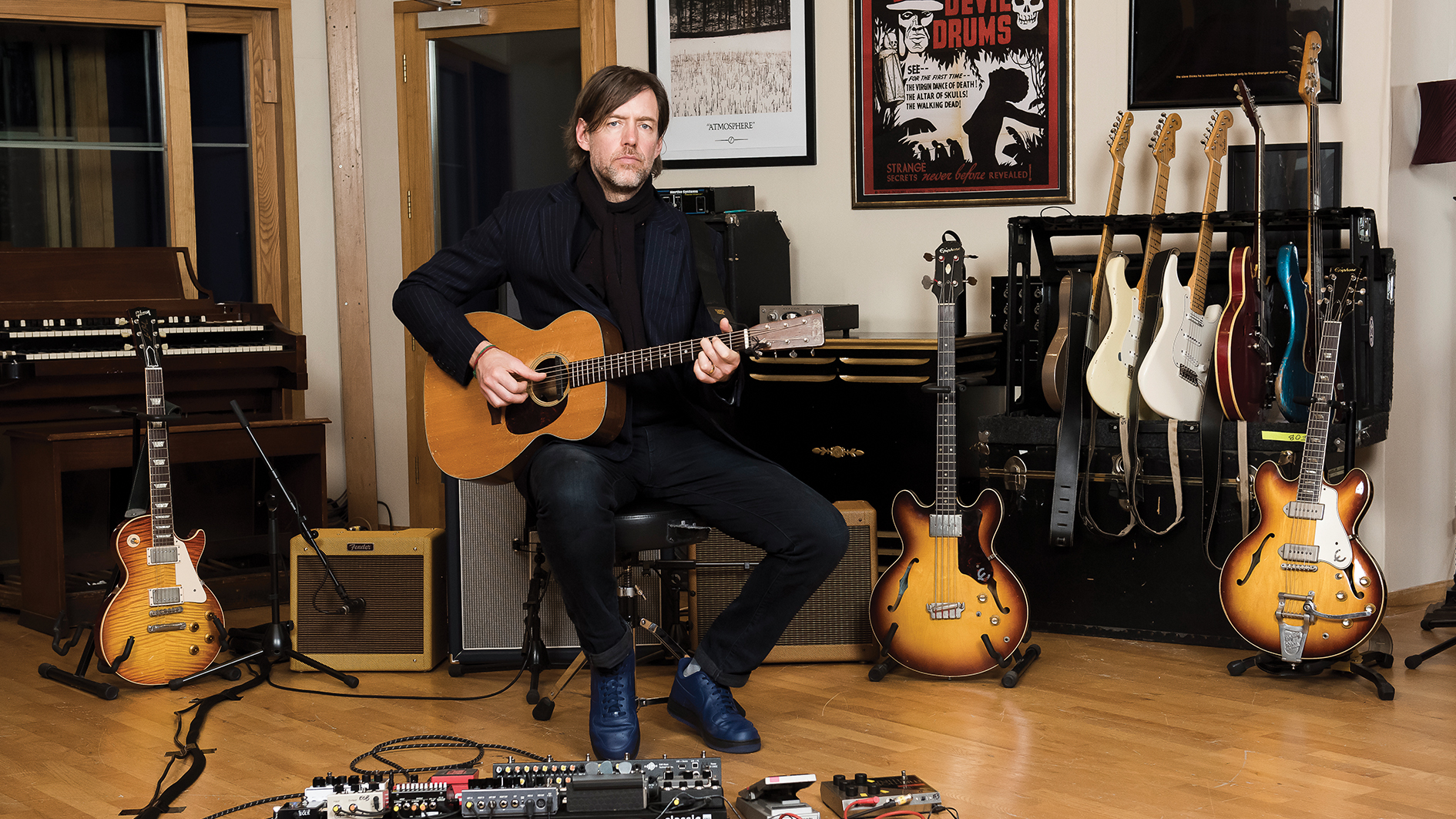Elbow's Guy Garvey says streaming payments are unsustainable and are “threatening the future of music“
Garvey, Ed O'Brien and Nadine Shah give evidence at a DCMS Committee inquiry into the economics of music streaming

Giving evidence to a Department of Culture, Media and Sport Committee inquiry into the economics of music streaming, Guy Garvey of Elbow said that the present model was “threatening the future of music.“
“That sounds very dramatic,“ he continued. “But if musicians can’t afford to pay the rent, if they can’t afford to live, then we haven’t got tomorrow’s music in place.“
Garvey, who hosts a BBC 6 Music radio show, said that the payments artists received from streaming platforms were unsustainable. He said that today's up-and-coming musicians face incredible challenges in first building an audience, developing their sound, and – crucially – earning a living wage.
If musicians can’t afford to pay the rent, if they can’t afford to live, then we haven’t got tomorrow’s music in place
Guy Garvey
“However leaky the boat has got, young musicians still don’t want to rock it," said Garvey. “[With] so much of the new music that I play, I don’t hear album two, I don’t hear album three, and I know why that is happening.”
Garvey was joined by Radiohead's Ed O'Brien and English singer-songwriter Nadine Shah. Shah has been nominated for a Mercury Prize, is a high-profile presence on radio and streaming platforms, and yet she said she was struggling to pay her rent.

“The earnings from my streaming are not significant enough to keep the wolf away from the door,“ said Shah. “[I am] an artist with a substantial profile, with a substantial fanbase, critically acclaimed, but I don’t make enough money from streaming. I am in a position now where I am struggling to pay my rent, and I am embarrassed to talk about these issues publicly. I am embarrassed.“
The inquiry, chaired by Conservative MP Julian Knight, saw MPs briefed on issues of transparency in streaming contracts, but also on the broader landscape of the music industry. The inquiry heard how contracts were often structured in a way that heavily favoured labels over artists.
Want all the hottest music and gear news, reviews, deals, features and more, direct to your inbox? Sign up here.
When Shah was asked by Labour MP Kevin Brennan about the Spotify tip jar feature, she described it as “insanely condescending,“ and “an admission of sorts which says, 'We know that you aren't making enough.'“
The earnings from my streaming are not significant enough to keep the wolf away from the door.I am struggling to pay my rent, and I am embarrassed to talk about these issues publicly
Nadine Shah
Ed O'Brien said there were broad imbalances in the old model of music publishing – the "analogue model" – that were being carried over into the digital era. “You are bolting on this digital model, and it is not working," he said.
The committee heard evidence in absentia from Aluna Francis, of the electronic music duo AlunaGeorge. Signed with Island Records in 2012, Francis generated over one billion streams, but only saw a royalty cheque for the first time in 2019. Those first royalties then went to pay the label who recouped their investment on studio time.
Tom Gray of Gomez was speaking in his capacity as founder of #BrokenRecord, an online campaign to seek a better settlement for streaming revenue distribution between artists, labels and streaming platforms.

Gray said the streaming model could work for independent artists, who would see 55 per cent of the revenues, but the structure of record deals put artists at a disadvantage.
“Most artists are working with labels, and most successful artists are working with major labels, and those deals are usually 80/20 in the label’s favour,“ he said. “Most artists are also heavily in debt to the labels.“
Streaming takes people away from filesharing. It just needs some parity and fairness in the system
Ed O'Brien
While concern was raised over fairness in distributing streaming revenues, O'Brien said that what was needed was not necessarily a wholesale shift from the model, but rather the system needed to be reformed so that artists may be remunerated more sustainably.
“What has been brilliant about streaming is that the norms of behaviour have shifted,“ said O'Brien. “It takes people away from file sharing. It just needs some parity and fairness in the system.“
Both O'Brien and Garvey were fortunate, they said. They had good management and could make a living. But the situation is critical for artists coming through – with Covid-19 taking live music revenues away, many are being forced out of the industry.
For so long, live income has been the band aid
Ed O'Brien
O'Brien, who had to cancel an extensive solo tour this year due to Covid-19, said his band are session players, and now have had to find alternative sources of income, as have his crew.
“I pay four musicians, and there is a crew of four or five, and their livelihoods have gone overnight,“ he said. “My band, my musicians, don’t have an income. They can’t tour. My crew, most of them, have become delivery drivers, Amazon drivers. These people are not ‘roadies’ – they are technicians, they are proper engineers.
“I don’t know what impact it will have on musicians, but young musicians, who rely on live income, are going to really struggle. For so long, live income has been the band aid.“
Jonathan Horsley has been writing about guitars and guitar culture since 2005, playing them since 1990, and regularly contributes to MusicRadar, Total Guitar and Guitar World. He uses Jazz III nylon picks, 10s during the week, 9s at the weekend, and shamefully still struggles with rhythm figure one of Van Halen’s Panama.
